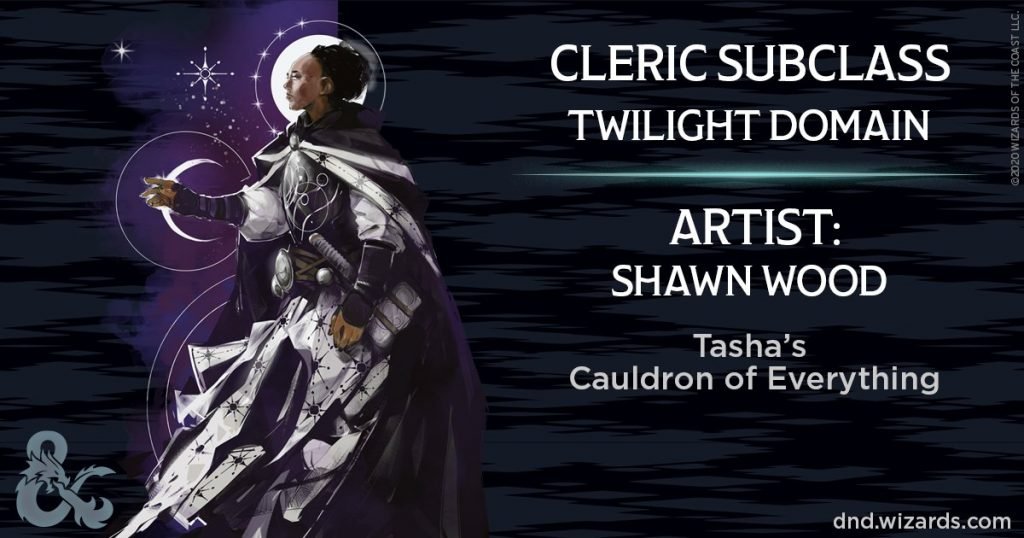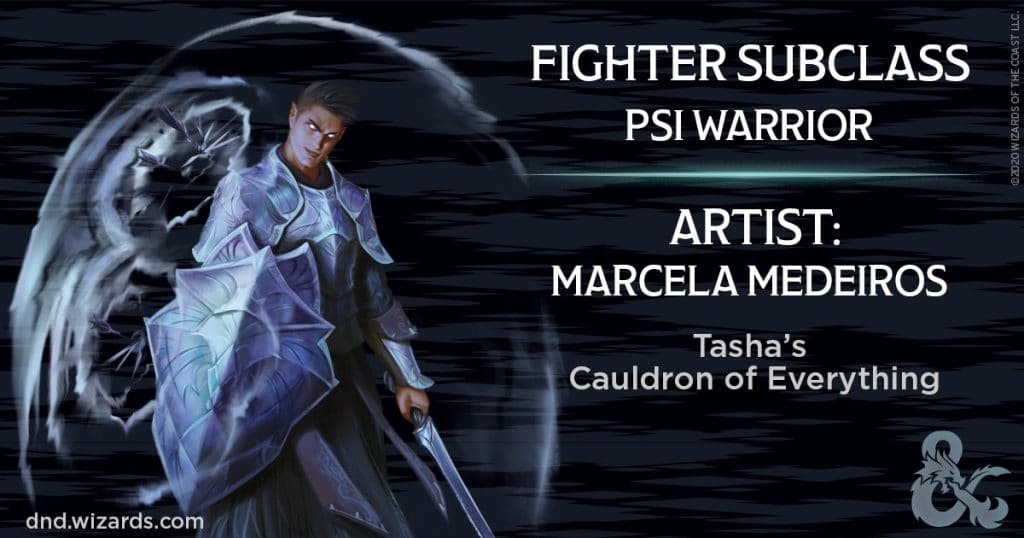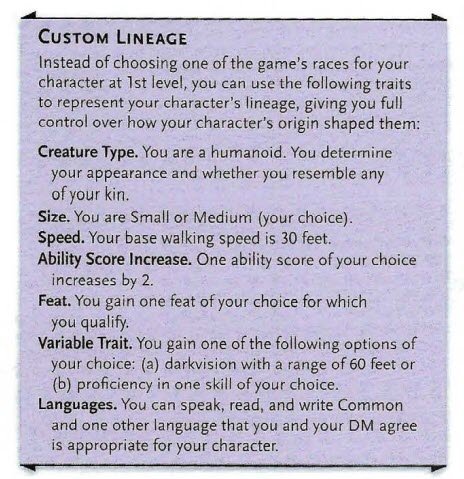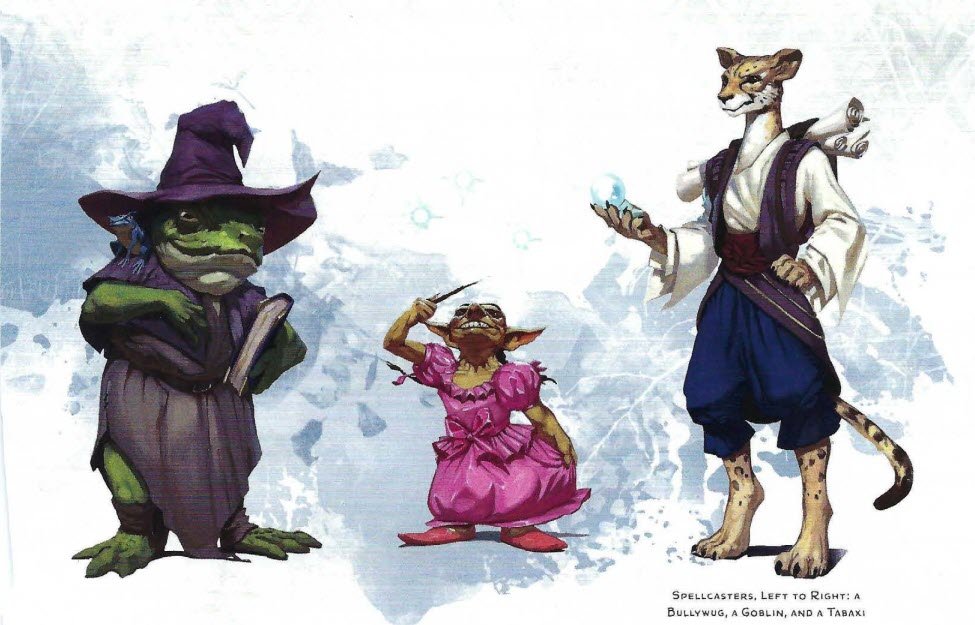Tasha's Cauldron of Everything was released a little over a week ago. And it is chock-full of ooey-gooey-stewy tidbits that will keep both Dungeon Masters and players coming back for seconds. Within the new WotC hardcover, D&D dice rollers get access to a slew of new subclasses, game mechanics (such as sidekicks and group patrons), as well as new spells, rules errata, environmental hazards, puzzles, and more magic and wondrous items than you can fit in a Bag of Holding.
_Not to mention my favorite new addition: mimic colonies as an environmental hazard! (I even took inspiration and made a side-questy adventure around it called Little House on the Scary!) This book is just full of fun stuff, without anymore rambling, let's dive into what Tasha's cooked up for us in her big ole stewpot.
Tasha's Table of Contents
Okay, for real, Tasha's book is full to the brim with different kinds of stuff. If you're familiar with Xanathar's Guide to Everything, then Tasha's Cauldron will be a similar sight. Xanathar had managed to compile a titanic amount of content into his guide, and Tasha one-ups him like a champ. (Use the slider below to see the tables of contents for XGE and TCE, respectively.)


Tasha compiles puzzles and other Dungeon Master's Tools and gives us a list of brand new magic items to toy with. While Xanathar did some great stuff with downtime, traps, and naming conventions, I just don't think they hold a candle to the expanded rules for Sidekicks and Group Patrons.
But YMMV on which is more valuable, depending on where your heart is. But I feel like Tasha's is more cohesive as a single volume with a wider array of content types within the same number of pages.
Classes and Subclasses
Not only does Tasha's Cauldron offer up subclasses, but players also get the full 5e Artificer class to play, too. The D&D 2024 version is from in the Eberron: Forge of the Artificer.
Of all the new subclasses and ideas in the book, one of the most interesting is the Cleric of the Twilight Domain.

I may be partial to the Twilight Cleric because of playing a Discipline and/or Shadow Priest in World of Warcraft for so long, but the whole class is just super cool. See Invisibility, Sleep, and Greater Invisibility all stand out to me as great additions to the Cleric's existing repertoire, and the new Channel Divinity: Twilight Sanctuary is probably my most favoritest item in the set.

It's not the most powerful ability in the world, but I adore the idea of walking around with a sphere of shadow that grants temporary HP and protection from charm/fear. For those with some sadistic DMs, this one could be a literal lifesaver.
And then there's the Psi Warrior. If you choose this new Fighter subclass, you “harbor a wellspring of psionic energy within yourself. This energy is represented by your Psionic Energy dice, which are each a d6. You have a number of these dice equal to twice your proficiency bonus, and they fuel various psionic powers…”

Or, in other words…you are a Jedi. And not just in the sort of adjacent way some fantasy classes play. Look at this list of abilities:
- Protective Field
- Psionic Strike
- Telekinetic Movement
- Psi-Powered Leap
- Telekinetic Thrust
- Guarded Mind
- Bulwark of Force (more like Bulwark of The Force, am I right?)
- Telekinetic Master
But for real, everything about this class is screaming at me to play it. So if my Warlock or Sorcerer dies, I start up a new campaign soon, or I just start multiclassing one of them Fighter, I am 100% going to be Force Pushing…errrr…I mean, Telekinetic Thrusting some kobolds before long.
Hmmm…I did have a Rock Gnome Fighter for AL a while back…anyway, moving on.
Race Rules
Tasha's Cauldron of Everything is both garnering praise and taking flak for its inclusion of some new racial ability rules. Finally, there are non-homebrew rules on how to have a character of a certain race not be a stereotype of a particular archetype.
The argument goes that not every Tiefling should have +1 Charisma because not all of them would be charismatic. Some would be more intelligent or stronger or wiser than charismatic. Or maybe not every Half-Orc has this genetic predisposition to violence and bloodlust they're keeping at bay. Perhaps Haruk the Dragonborn Cleric was raised underground and speaks Gnomish instead of Draconic. Or maybe the Tiefling's family spoke only Infernal and home and they can't understand Common at all.
Now there are rules for all of that.
Whatever it is, part of the fundamental gameplay of Dungeons & Dragons has always been choosing a race based on stat differences that would benefit your chosen class in some way. With the new rules in Tasha's Cauldron of Everything, that's far less of a sticking point.
The eponymous witch (through her contacts at WotC, of course) gives guidance on Proficiency swaps, tools and skills and whatnot. Stat increases can be manipulated some.
There's even a Custom Lineage block where you can create your race in no time flat:

This isn't pandering. This isn't some agenda being pushed like some ridiculous internet trolls keep complaining. It's being inclusive and allowing players more official freedom in how they play. While it's always possible to homebrew what you want, some DMs are rulewhips. If nothing else, this gives you more of a leg to stand on with them.
Basically: Tasha says have fun however you want to have fun.
Sidekicks

As I mentioned above, some new rules for sidekicks have been expanded since they were introduced in Essentials Kit (affiliate link). What was initially a fun little way to make your D&D games work with fewer people has now been turned into a full-blown party expansion mechanic.
James Haeck over at D&D Beyond wrote up a great piece on incorporating sidekicks into your sessions as heroes in their own right. It's a fascinating read and really gives a lot of insight into how the sidekick mechanic can work when in the hands of a DM who wants to make it something special.
Basically, you're not limited to homebrew rules for keeping NPCs around your party or simple monster stat blocks that you're adapting or playing on the fly. Tasha's Cauldron of Everything provides rules for making these sidekicks mainstays in your campaign, letting you level them up, choose spells and paths and abilities for them, and even ways for your party members to play them as minions/hirelings or from under the control of the Dungeon Master.
No matter how you incorporate sidekicks, the expanded ruleset in Tasha's Cauldron is going to make some incredibly fun campaigns and sessions in the future.
All The Rest in Tasha's Cauldron of Everything
All that said, I can't go in-depth on all the stuff in the big ole cookpot here. But let's suffice it to say that Tasha's Cauldron of Everything is one of the strongest, most diverse and varied sourcebook yet for Dungeons & Dragons 5e. It succeeds at what it set out to do. Which is expand the fifth edition ruleset into something more expansive than ever before.
Where Xanathar's Guide to Everything felt like a necessary companion to the Player's Handbook, Tasha's Cauldron of Everything feels like a necessary expansion to the game itself. That's exactly the kind of hardcover sourcebook we can get behind.
Geek to Geek Rating: 5 out of 5 cauldron bubbles
If you're interested in D&D, check out some of the best free 5e one-shots out there as well as the best beginner adventure for DnD 5e.


[…] The content itself is split into three separate volumes, each containing a core part of what DMs will need to run the campaign. Each one of the books is 64 pages long, which adds up to 192 pages of content — exactly how much is in single-volume sources like Tasha's Cauldron of Everything. […]